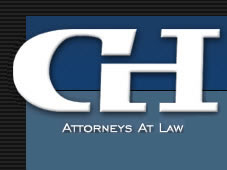Litigators often reach for doctrines such as res judicata or collateral estoppel to narrow the scope of a case. Res judicata prevents re-litigation of the same claim that was litigated in a prior case. Collateral estoppel prevents re-litigation of the same issue that was decided in a prior case. These are powerful tools which may short circuit the opposing side's case or important issues in that case. Surprisingly, there is another tool with potential power in the same league as that of res judicata and collateral estoppel, but it is almost always used in its weakest form. While judicial notice of court records is often requested, its scope and meaning is frequently misunderstood and it is rarely used to prevent re-litigation of an issue.
A request for judicial notice is made under California Evidence Code Section 453. Section 452(d) authorizes courts to take judicial notice of court records. Case law follows the code in allowing judicial notice of court records. Duggal v. G.E. Capital Communications Services, Inc., 81 Cal. App.4th 81, 86 (2000). Judicial notice may be taken of records in another court's file or in a court's own files. Thornton v. Rhoden, 245 Cal. App. 2d 80, 96 n.17 (1966).
There are two vastly different kinds of judicial notice of court records. A request for judicial notice of a court record, without more, only directs the court to acknowledge the existence of documents in court files. For example, a court could take judicial notice that an answer to a complaint has been filed. This type of judicial notice achieves nothing with respect to the content of the documents. To continue with the example, the answer might allege that the complaint is barred by the statute of limitations. Simply requesting judicial notice of the answer does not compel the court to accept the validity of the defense of the statute of limitations. This makes perfect sense, because that defense has not been proved, it is only alleged. While this analysis is obvious with respect to pleadings, it also applies to other documents in a court file - such as contracts. A request to take judicial notice of a contract in the court's file does not achieve anything with respect to the content of that contract; it does not establish any facts or findings.
But a party can seek a far more powerful type of judicial notice of court records - one which does establish facts or findings that cannot be litigated again. This type of judicial notice focuses on the content of a document and asks that the court be bound by that content. To achieve this type of judicial notice, a party must determine what kinds of documents are eligible for this more meaningful type of judicial notice. It must select one of those eligible documents, and it must provide authority to the court to support the request. The authority must go beyond the routine request for notice that a document is in a court file.
Only a few documents are eligible for this more meaningful type of judicial notice. "A court may take judicial notice of the existence of each document in a court file, but can only take judicial notice of the truth of facts asserted in documents such as orders, findings of fact and conclusions of law, and judgments." Day v. Sharp , 50 Cal. App. 3d 904, 914 (1975). This type of judicial notice is limited to court orders, findings and judgments. Jury verdicts fall within the scope of this notice as well. This type of judicial notice can be very powerful because the court before which the request is made is bound by the facts or findings in the court record. Like collateral estoppel or res judicata, this type of judicial notice limits the scope of proceedings in the current case.
Assuming the appropriate request and the correct category of document, the court has little leeway. Once judicial notice has been appropriately requested, Evidence Code Section 453 provides that judicial notice of the requested matters becomes compulsory. A skillful party can use judicial notice to establish important facts or orders based upon findings in a prior (or the sa me) case. The party then need not do further work to prove those facts or orders. "[T]he weight of authority is that, where notice is mandatory, the effect is substantially that of a conclusive presumption; i.e., the fact must be accepted and no evidence can be offered to dispute it." 1 Witkin Cal. Evid. 4th (2000) Judicial Notice Section 3(2), p. 103. This conclusive effect means that this is not a situation in which one side offers proof and the other may rebut it, but rather a situation in which the parties are bound by the prior determination - just like res judicata and collateral estoppel.
Mr. Sarabia has become intimately familiar with the many business problems - and legal issues - which fashion companies may face. The start of his apparel industry experience was nine remarkable years as part of the senior management of Guess?, Inc. Guess? went through amazing growth during this period, one year alone its sales grew 400%! In these nine years, Guess? transformed from a fad into a mainstay fashion company. Those who were fortunate enough to work there saw a variety of challenges, problems and issues which most apparel companies do not encounter over decades.
©Copyright - All Rights Reserved
DO NOT REPRODUCE WITHOUT WRITTEN PERMISSION BY AUTHOR.









